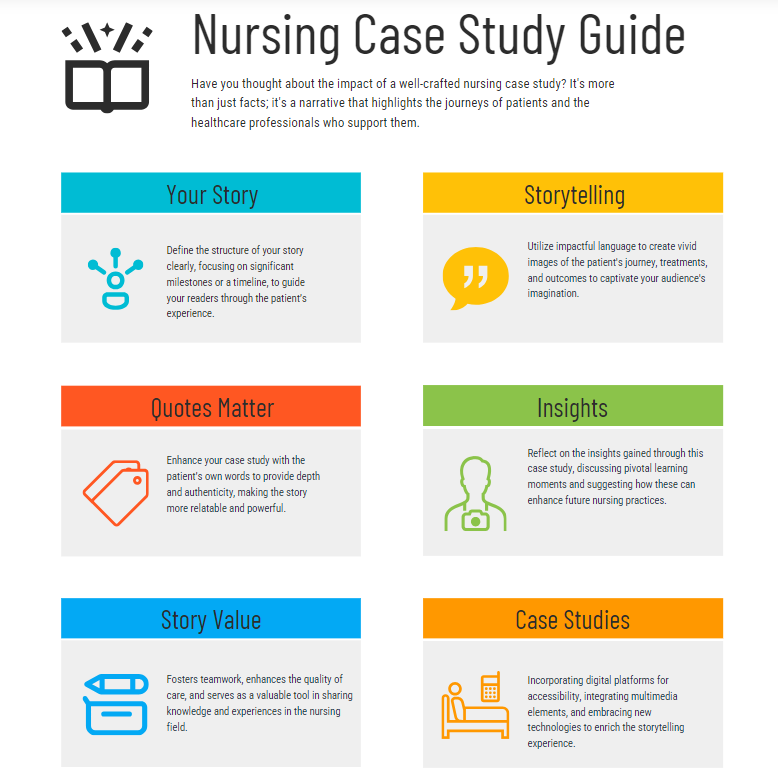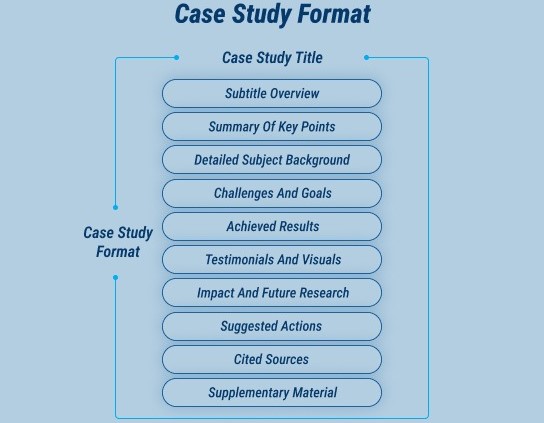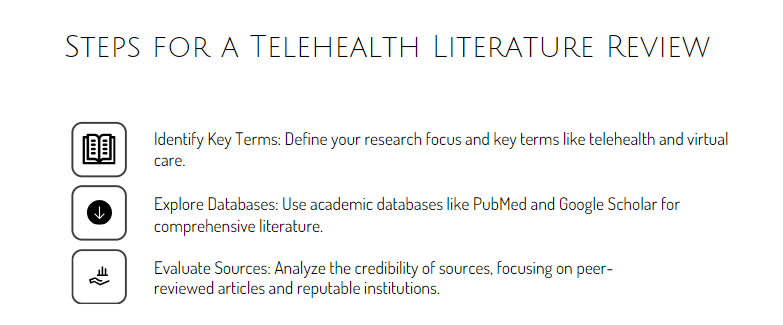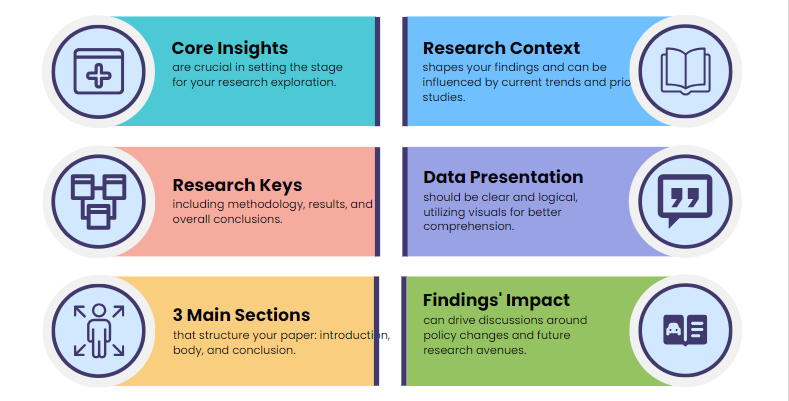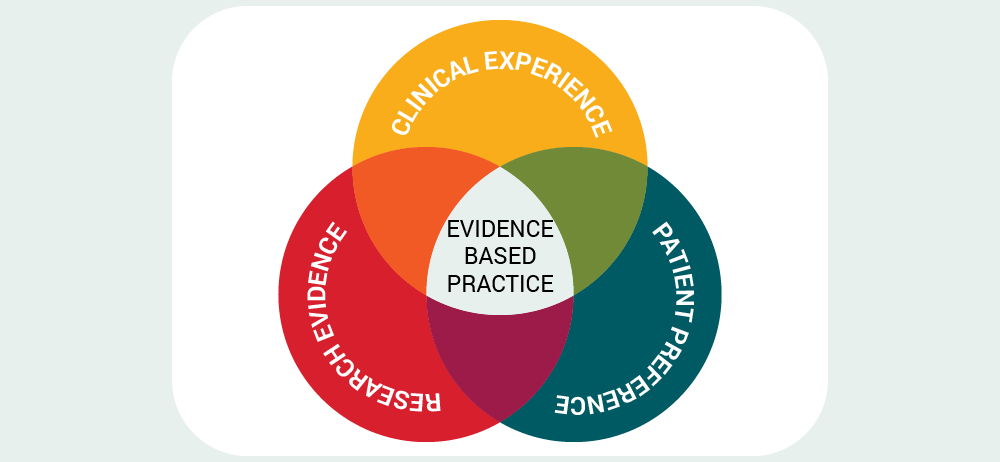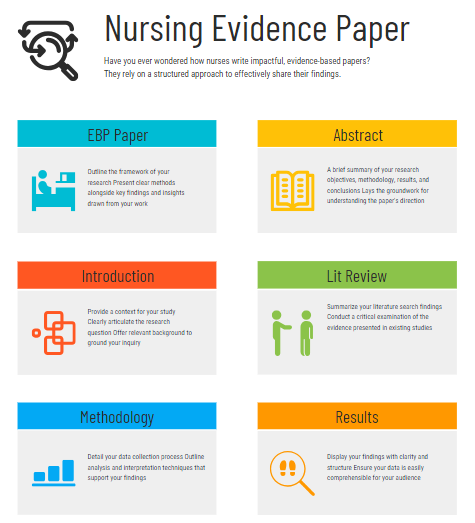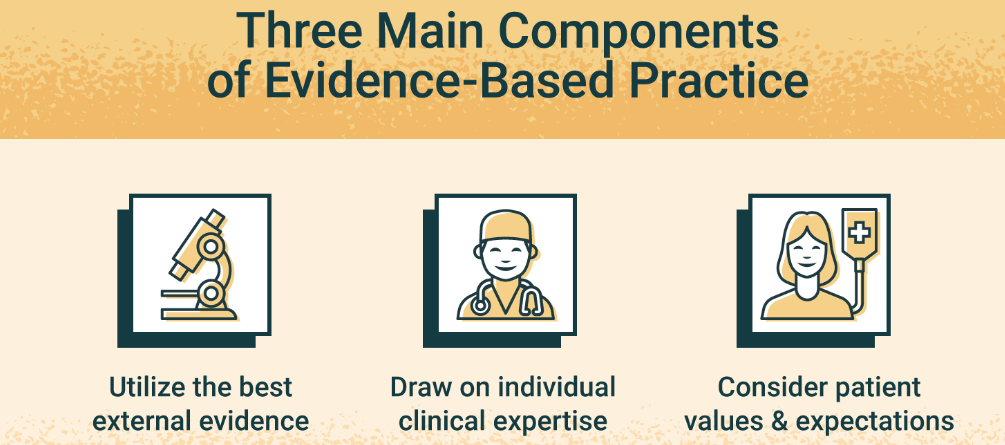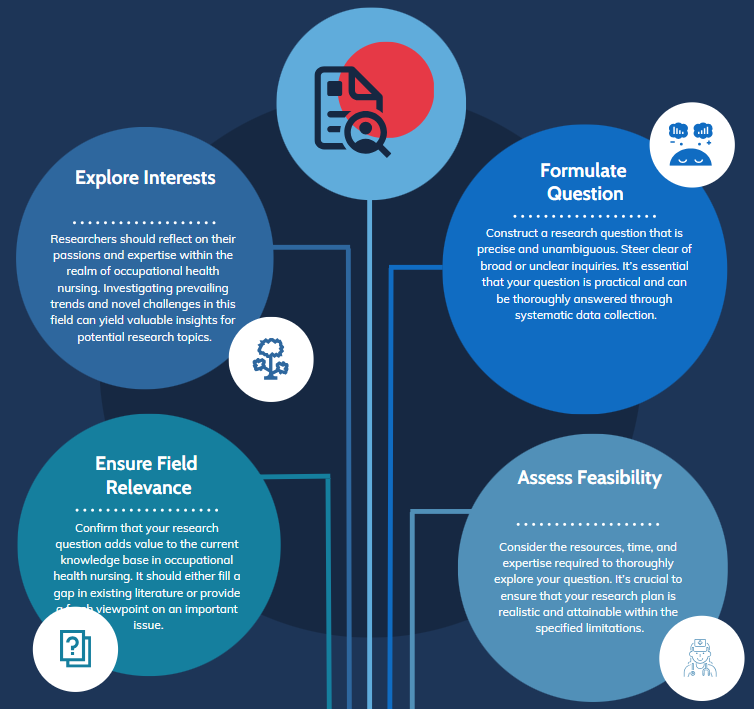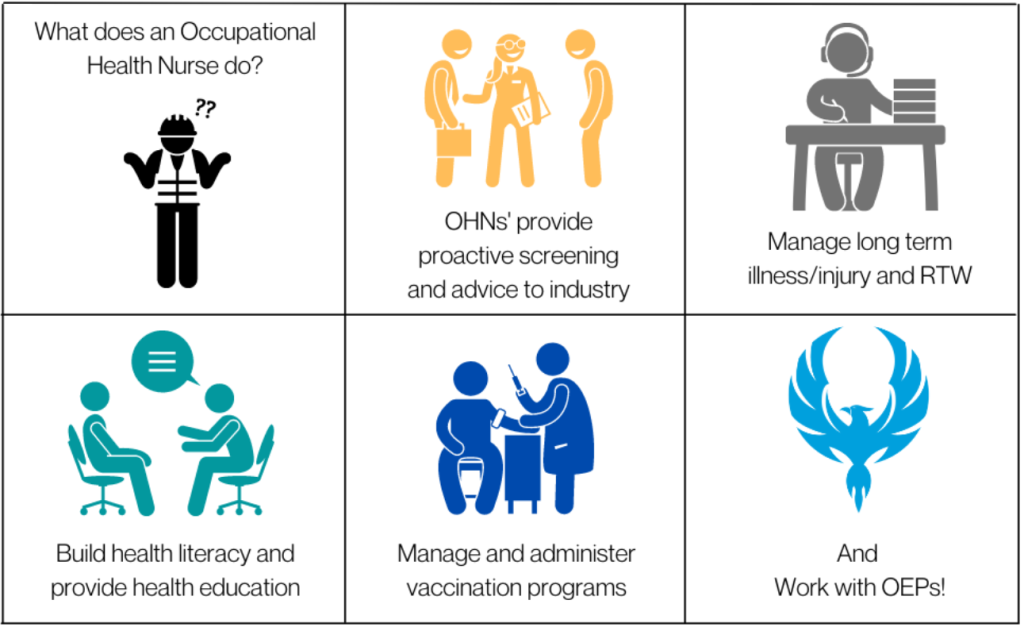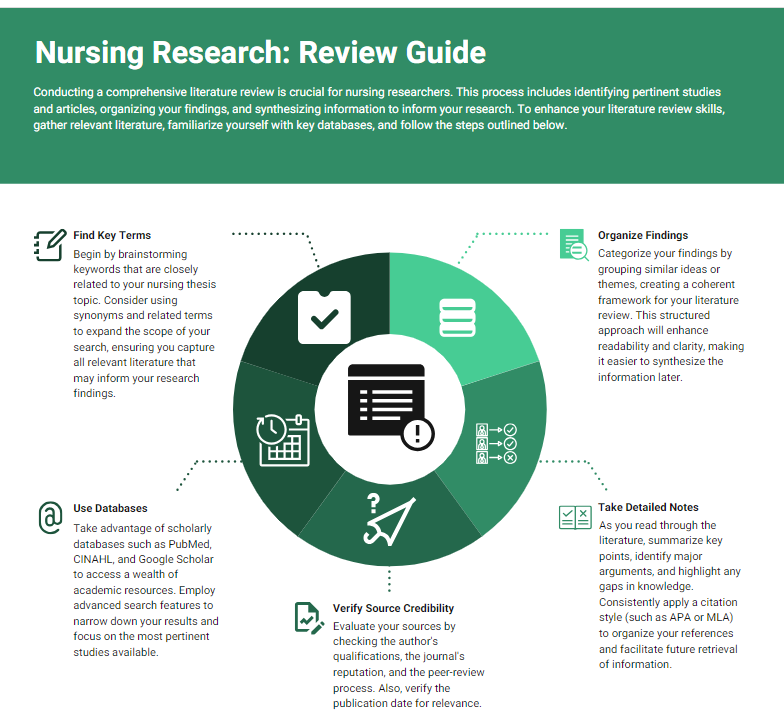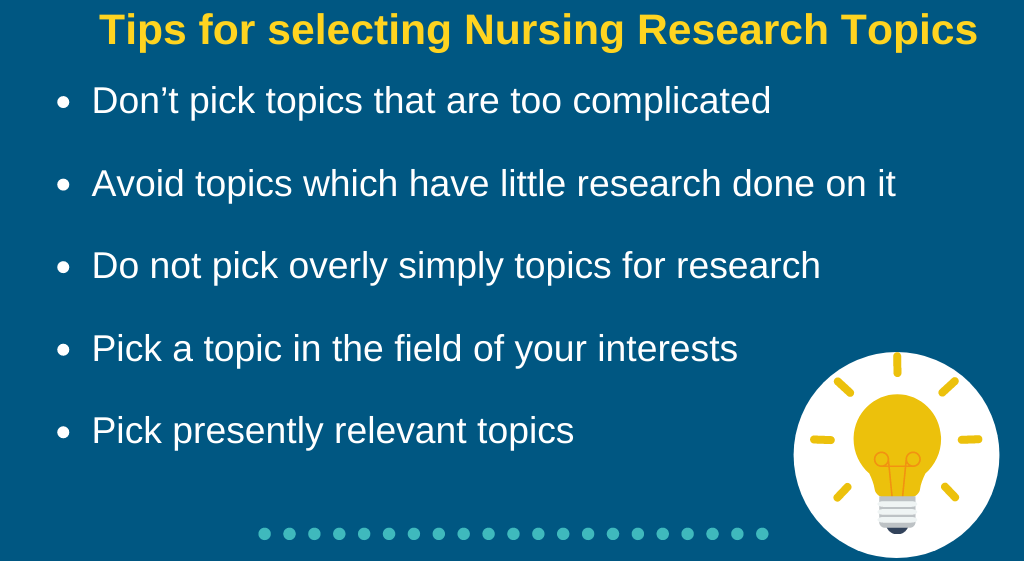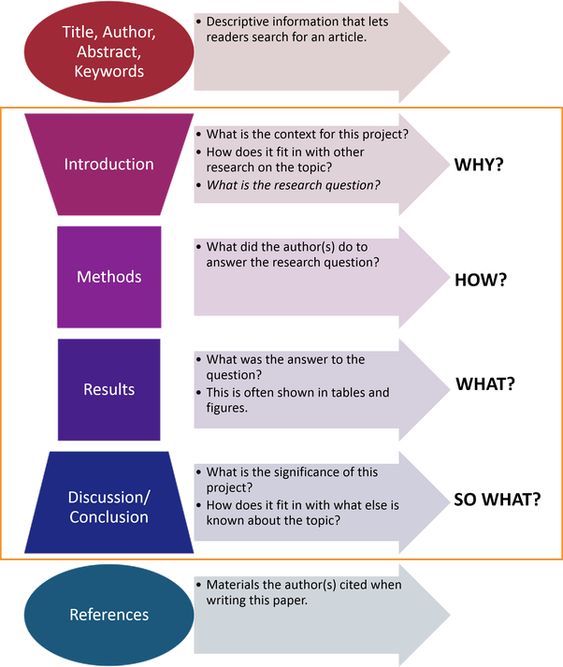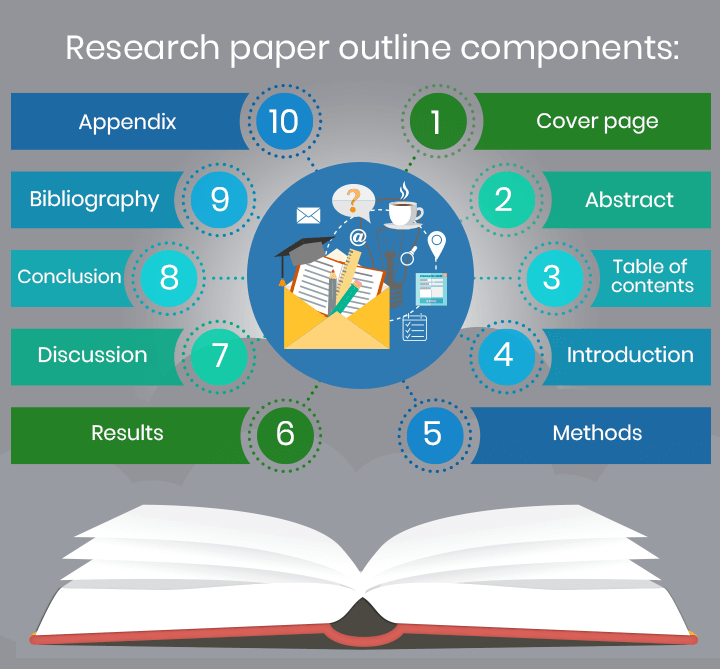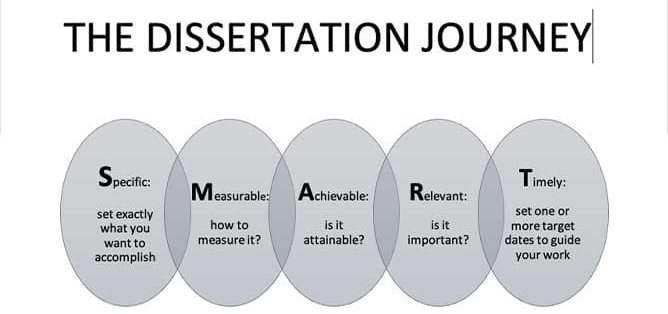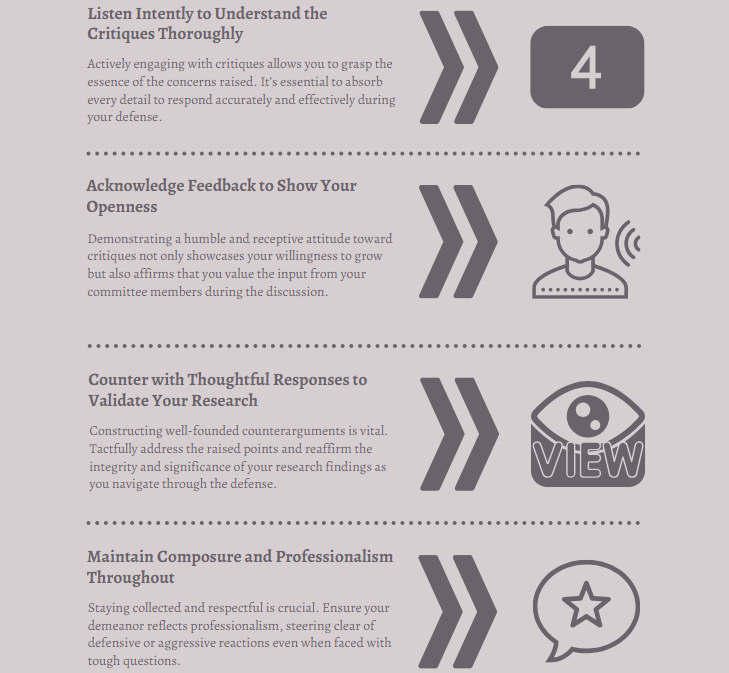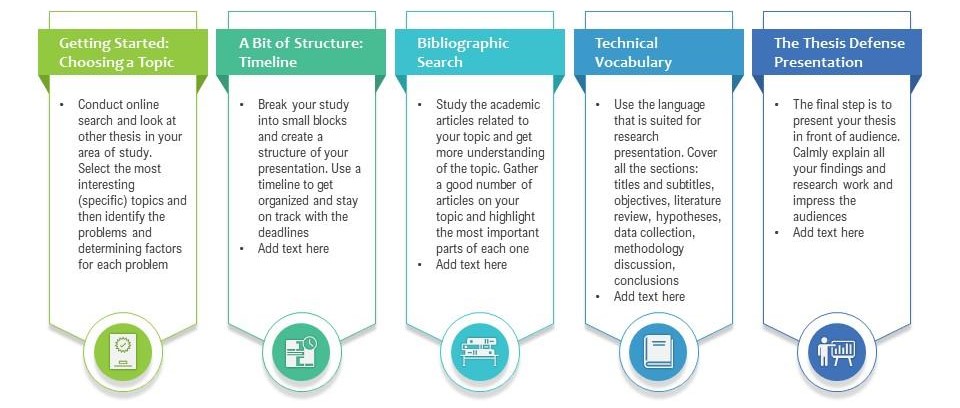
Table of Contents
The nursing profession is a field steeped in compassion, dedication, and a constant pursuit of knowledge. For those seeking to contribute to this field on a deeper level, embarking on a nursing thesis journey is a rewarding, yet demanding, endeavor. The foundation of a successful nursing thesis lies in its structure – a carefully crafted framework that guides your research, presents your findings, and ultimately, contributes to the advancement of nursing practice.
This article will serve as your compass through the labyrinth of nursing thesis structure, guiding you through each crucial stage of its development, from conceptualizing your research question to crafting a compelling conclusion.
Step-by-Step Guide to Crafting a Stellar Nursing Thesis Structure
1. The Genesis of an Idea: Defining Your Research Question
The genesis of any strong nursing thesis structure lies in the clarity and significance of your research question. It’s the driving force behind your entire thesis, shaping your methodology, data analysis, and ultimately, your conclusions.
Here’s a breakdown of how to formulate a compelling research question:
- Identify your interests: What areas of nursing practice intrigue you? What knowledge gaps do you observe in your field?
- Explore existing literature: Consult scholarly journals, textbooks, and relevant databases to understand current research and identify unanswered questions.
- Define your focus: Narrow down your research area to a specific and manageable question. This might involve exploring a specific patient population, intervention, or health outcome.
- Formulate a clear question: Your research question should be specific, measurable, achievable, relevant, and time-bound (SMART). It should also be phrased in a way that allows for empirical investigation.
Example:
Broad area of interest: Improving patient satisfaction in acute care settings
Specific research question: Does implementing a patient-centered communication protocol in acute care settings improve patient satisfaction with care?
2. Building the Scaffolding: Designing Your Thesis Structure
Once you’ve established your research question, it’s time to build the scaffolding of your nursing thesis structure. This involves creating a clear outline that lays out the logical flow of your argument and research.
Here’s a standard structure for a nursing thesis:
- Introduction:
- Background: Provide context for your research, highlighting its relevance to the broader field of nursing.
- Literature Review: Summarize and critically analyze existing literature related to your topic. This should demonstrate your understanding of the current state of research and identify the gap your research aims to fill.
- Statement of the problem: Clearly articulate the issue your research addresses and its significance.
- Research question and hypotheses (if applicable): State your research question and any specific hypotheses you aim to test.
- Methods: This section details the methodology you used to conduct your research.
- Study Design: Clearly describe the type of study you conducted (e.g., experimental, qualitative, mixed methods).
- Participants: Explain the characteristics of your study population, including their demographics and selection criteria.
- Data Collection: Describe the methods used to collect data, including instruments, procedures, and ethical considerations.
- Data Analysis: Outline the statistical or qualitative analysis methods employed.
- Results:
- Presentation of findings: Present your research findings in a clear and concise manner, using tables, figures, and descriptive text.
- Interpretation: Provide a clear and objective interpretation of your findings in relation to your research question.
- Discussion:
- Interpretation of findings: Explain the significance of your findings in relation to existing literature and the broader field of nursing.
- Limitations: Acknowledge any limitations of your study that could influence your results.
- Implications for practice: Discuss the practical implications of your findings for nursing practice, suggesting potential changes or interventions.
- Future research directions: Identify potential avenues for future research that could build upon your findings.
- Conclusion:
- Summary of findings: Summarize the key findings of your research and reiterate their significance.
- Contributions to knowledge: State the contribution your thesis makes to the body of knowledge in nursing.
- Closing remarks: Provide a concise and impactful closing statement.
- References: Include a comprehensive list of all sources cited in your thesis.
- Appendices (if applicable): Include any supplementary materials such as questionnaires, consent forms, or detailed statistical analyses.

3. The Art of the Craft: Writing a Compelling Nursing Thesis
While the nursing thesis structure provides a roadmap, the art of crafting a compelling thesis lies in the execution.
Here are some key principles to keep in mind:
- Clarity and coherence: Use clear and concise language, ensuring your arguments flow logically from one section to the next.
- Evidence-based reasoning: Support all your claims with robust evidence from credible sources.
- Objectivity and critical analysis: Approach your research with objectivity and engage in critical analysis of your findings.
- Professional style and tone: Maintain a professional tone and adhere to academic writing standards.
- Proofreading and editing: Thoroughly proofread and edit your thesis for grammatical errors, typos, and inconsistencies.
4. The Journey of Revision: Polishing Your Nursing Thesis Structure
The nursing thesis structure is not set in stone. As you progress through your research and writing, it’s essential to constantly revise and refine your work.
Here are some ways to ensure your structure remains strong:
- Seek feedback: Share your work with your advisor, colleagues, or peers to receive constructive criticism and suggestions for improvement.
- Revisit your research question: Periodically revisit your research question to ensure your thesis remains focused and relevant.
- Stay organized: Utilize a dedicated folder system to manage your research materials, drafts, and revisions.
- Allow for incubation: Take breaks from writing to allow your ideas to incubate and fresh perspectives to emerge.
5. Beyond the Structure: The Value of Your Nursing Thesis
A well-structured nursing thesis serves as a testament to your dedication and intellectual contributions to the field. It allows you to explore a research area in depth, synthesize existing knowledge, and generate valuable new insights.
Here are some potential benefits of completing a nursing thesis:
- Professional development: Develops your critical thinking, research, and writing skills.
- Career advancement: Enhances your credentials and competitiveness in the job market.
- Knowledge creation: Contributes to the advancement of nursing knowledge and practice.
- Impact on patient care: Your research findings may lead to improvements in patient care and health outcomes.
Common Mistakes in Nursing Thesis Structure and How to Avoid Them
A nursing thesis is the culmination of years of study and dedication, a testament to your research and critical thinking skills. However, even the most passionate and well-informed student can fall prey to common mistakes in the nursing thesis structure. This can significantly hinder the impact and clarity of your work, jeopardizing your chances of successful completion.
Mistake #1: Lack of a Clear and Focused Research Question
The foundation of a strong nursing thesis structure is a well-defined research question. Without a clear direction, your thesis will meander aimlessly, failing to offer a compelling argument or meaningful contribution to the field. Avoid vague or overly broad questions that are difficult to address within the scope of your thesis. Instead, focus on a specific problem or phenomenon within nursing practice, ensuring it is relevant, researchable, and addresses a gap in existing knowledge.
Mistake #2: Ignoring the Significance of the Study
Every nursing thesis structure should clearly articulate the significance of the research. Why is this research important? What impact will the findings have on nursing practice, policy, or patient care? Don’t simply state your research question; provide a compelling justification for its investigation. Highlight the potential implications of your findings and their contribution to the larger field of nursing.
Mistake #3: Neglecting the Literature Review
A comprehensive literature review is crucial for a strong nursing thesis structure. It provides the context for your research, demonstrating your understanding of the current state of knowledge and identifying gaps that your study addresses. Avoid simply listing and summarizing studies. Critically analyze and synthesize the existing literature, highlighting key findings, contradictions, and areas for further exploration.
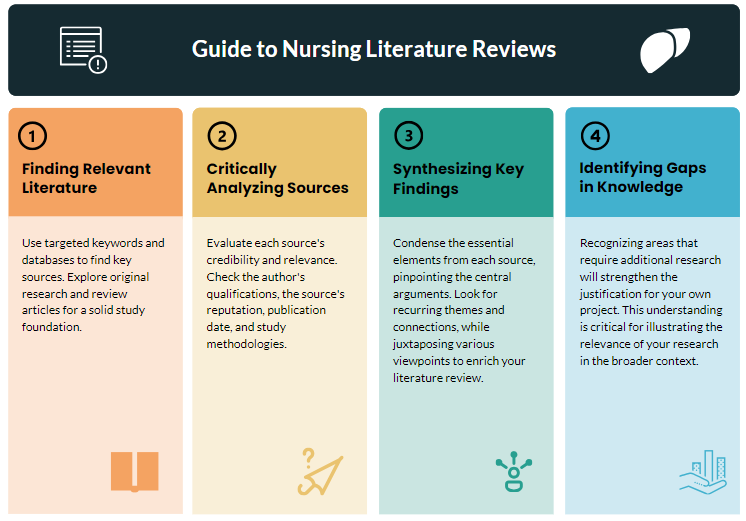
Mistake #4: Unclear Methodology and Data Analysis
The methodology section of your nursing thesis structure lays out the framework for your research. Clearly and concisely explain your research design, data collection methods, and data analysis techniques. Ensure the methodology is appropriate for the research question and the data collected. Avoid unnecessary technical jargon and strive for transparency and reproducibility.
Mistake #5: Weak Discussion and Conclusion
The discussion and conclusion sections of your nursing thesis structure are where you bring everything together. Don’t simply restate your findings; interpret their significance in light of the existing literature. Address any limitations of your study and discuss the implications of your findings for nursing practice and future research. Your conclusion should be concise and impactful, summarizing the main contributions of your thesis and outlining potential future directions.
Mistake #6: Poor Formatting and Presentation
A well-structured nursing thesis structure is not just about content; it also involves proper formatting and presentation. Adhere to the specific guidelines provided by your institution, including formatting rules for headings, subheadings, citations, and references. Ensure your thesis is clear, concise, and visually appealing, making it easier for readers to understand and engage with your research.
Avoiding These Mistakes: A Practical Guide
- Plan meticulously: Before embarking on your thesis, develop a detailed outline that maps out the entire nursing thesis structure.
- Seek guidance: Don’t be afraid to seek guidance from your supervisor or faculty members.
- Stay focused: Regularly revisit your research question and ensure all aspects of your thesis contribute to its answer.
- Stay organized: Utilize tools and software for effective note-taking, referencing, and organization of your research.
- Write effectively: Practice clear and concise writing, avoiding overly complex language and unnecessary jargon.
- Proofread meticulously: Thoroughly proofread your thesis for grammar, spelling, and clarity.
A well-structured nursing thesis structure reflects not only your knowledge and skills but also your commitment to rigorous research and your passion for contributing to the field of nursing. By avoiding these common mistakes and following these practical tips, you can ensure your thesis is a testament to your expertise and a significant contribution to nursing knowledge.
Frequently Asked Questions about Nursing Thesis Structure
A nursing thesis is the culmination of years of dedication, research, and critical thinking. It’s a rigorous undertaking that demands a clear, well-structured approach. For many students, the daunting task of crafting a thesis can be overwhelming, particularly when faced with questions about the nursing thesis structure. This section addresses some common queries and provide guidance on navigating this crucial aspect of your academic journey.
1. What are the Essential Components of a Nursing Thesis Structure?
The nursing thesis structure typically follows a conventional format, ensuring clarity and logical flow. The key elements include:
- Introduction: This section establishes the research topic, its significance, and the problem statement. It should also present a clear thesis statement, outlining the primary argument or proposition.
- Literature Review: A comprehensive review of existing literature on the chosen topic is essential. It provides context, highlights gaps in knowledge, and justifies the need for your research.
- Methodology: This section details the research design, including the study population, data collection methods, and data analysis techniques.
- Findings and Results: This part presents the outcomes of your research, often using tables, figures, and statistical analysis. It should be presented objectively and free from interpretation.
- Discussion: Here, you interpret the findings, discuss their implications, and link them to the existing body of literature. You can address any limitations of the study and propose directions for future research.
- Conclusion: The conclusion summarizes the key findings and restates the thesis statement. It should clearly highlight the significance of your research and its contributions to the field of nursing.
- References: A comprehensive list of all sources cited in the thesis, formatted according to the chosen style guide.
2. How do I Choose a Relevant and Feasible Topic for My Nursing Thesis?
Selecting a suitable topic is paramount for a successful nursing thesis structure. It should be:
- Relevant: Choose a topic that aligns with your interests and expertise, and is relevant to current issues and research trends in nursing.
- Feasible: Consider the resources available to you (time, funding, access to data), and ensure your research question can be answered within the scope of your thesis.
- Specific and Focused: Narrow down your research topic to a specific area of inquiry. A well-defined scope allows for a more thorough and in-depth exploration.
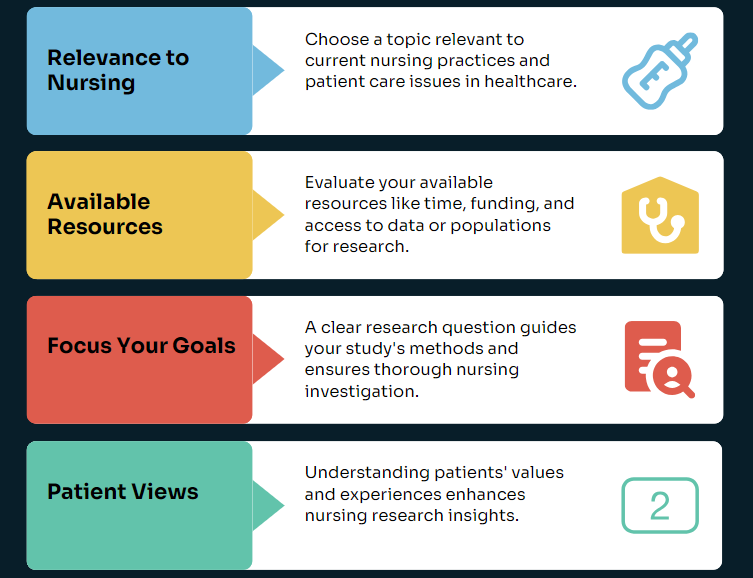
3. What are the Different Types of Nursing Thesis Structures?
The nursing thesis structure can vary depending on the type of research conducted. Common types include:
- Quantitative Research: This approach uses numerical data and statistical analysis to test hypotheses. The structure is often more rigid and focuses on quantifiable results.
- Qualitative Research: This approach uses non-numerical data, such as interviews or observations, to explore complex phenomena and generate insights. The structure is more flexible and allows for a deeper understanding of the participants’ experiences.
- Mixed Methods Research: This approach combines elements of both quantitative and qualitative research to provide a more comprehensive understanding of the research problem. The nursing thesis structure reflects the integration of both approaches.
4. What is the Importance of a Clear and Concise Thesis Statement?
The thesis statement is the cornerstone of your nursing thesis structure. It acts as a roadmap for your research and guides your readers through your argument. A strong thesis statement should be:
- Clear and Concise: Use precise language to state your main argument without ambiguity.
- Specific: Focus on a particular aspect of the research topic and avoid broad generalizations.
- Arguable: The thesis statement should present a position that can be supported through evidence.
5. How do I Ensure My Nursing Thesis Follows Proper Formatting and Style Guidelines?
Consistency in formatting and style is crucial for a professional and credible nursing thesis structure. Adhering to the guidelines of your institution or chosen style guide (APA, Chicago, etc.) ensures clarity and consistency throughout your thesis. Pay attention to:
- Font: Use a standard font and size throughout the thesis.
- Spacing: Maintain consistent line spacing and margins.
- Page Numbers: Include page numbers in the appropriate location.
- Citations and References: Use a consistent citation format and ensure accurate referencing.
6. What Resources are Available to Assist Me in Crafting a Successful Nursing Thesis?
Several resources can provide invaluable support throughout your thesis journey:
- Faculty Advisor: Your faculty advisor is your primary mentor and can guide you in selecting a topic, developing your nursing thesis structure, and refining your research process.
- University Libraries: Access to databases, journal articles, and other scholarly resources is crucial for conducting thorough research and supporting your arguments.
- Writing Centers: University writing centers offer workshops, tutoring, and feedback on your writing, ensuring clarity and effectiveness in your writing style.
7. What are the Key Tips for Writing a Strong and Successful Nursing Thesis?
- Start Early: Begin planning and researching your topic well in advance to avoid unnecessary pressure and last-minute scrambling.
- Break Down the Task: Divide the thesis into manageable sections and set realistic deadlines for completing each one.
- Seek Feedback: Regularly solicit feedback from your advisor, peers, and writing center professionals to improve your work.
- Proofread Carefully: Pay meticulous attention to grammar, spelling, and punctuation to ensure the thesis is polished and professional.
The nursing thesis structure is a crucial aspect of your academic journey. By understanding the essential components, choosing a relevant topic, and following proper formatting guidelines, you can craft a well-structured and impactful thesis that reflects your knowledge and contributions to the field of nursing. Remember to leverage the resources available to you and seek guidance from your mentors. With dedication, careful planning, and a clear understanding of the nursing thesis structure, you can confidently complete this important milestone in your academic career.

Final Thoughts
The journey of crafting a nursing thesis structure is both challenging and rewarding. By following the principles outlined in this article, you can navigate the complexities of research and writing, ultimately producing a compelling and impactful thesis. Remember, the structure is your compass, guiding you towards a destination that will not only enhance your professional journey but also contribute meaningfully to the world of nursing.
Get Professional Nursing Thesis Writing Help
At PhD Nurse Writer, we offer professional thesis writing service for all nursing disciplines and specialties. Our service covers topic suggestion, thesis writing, proofreading, editing, formatting and plagiarism removal. Besides thesis writing, we can also assist you with dissertations, research papers and essays.


